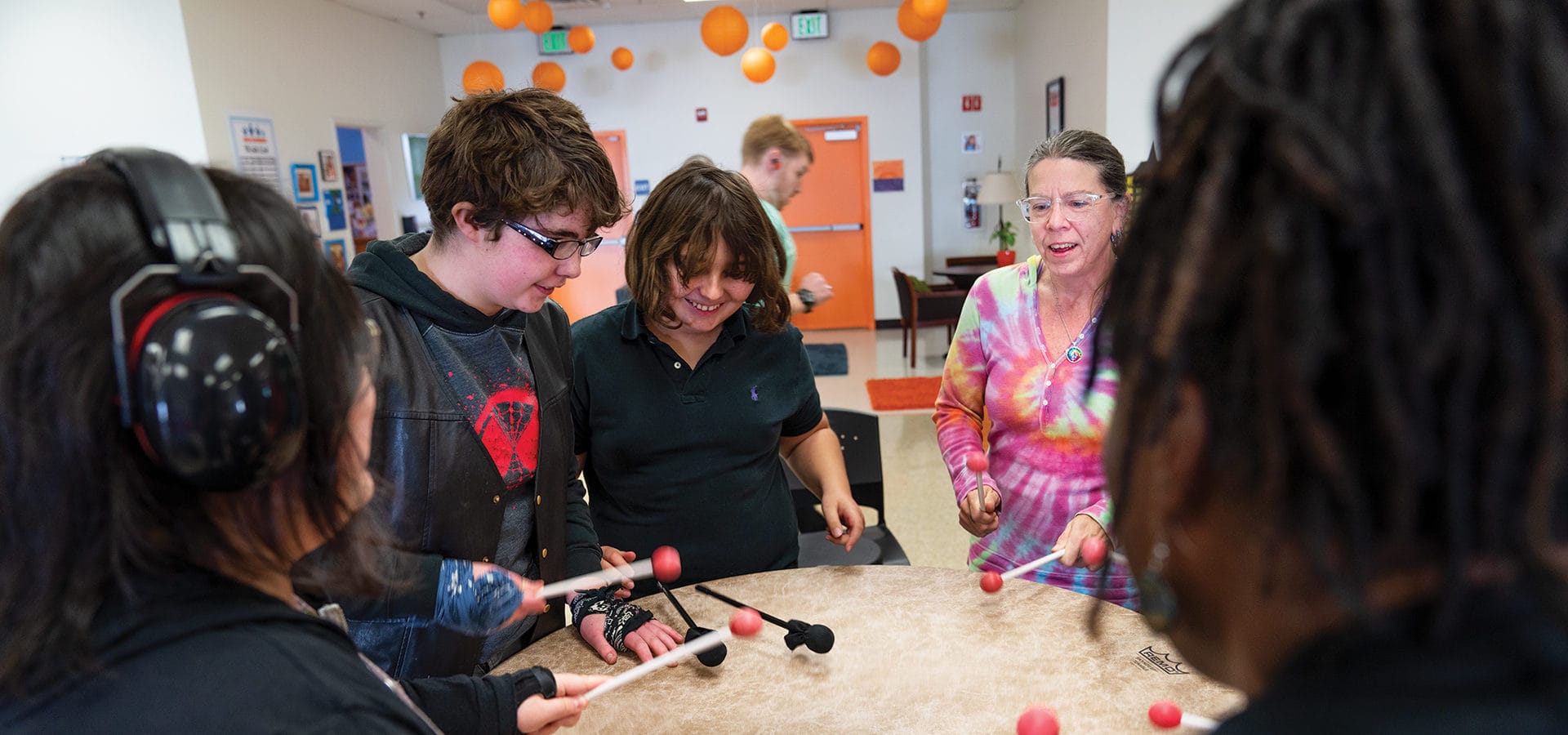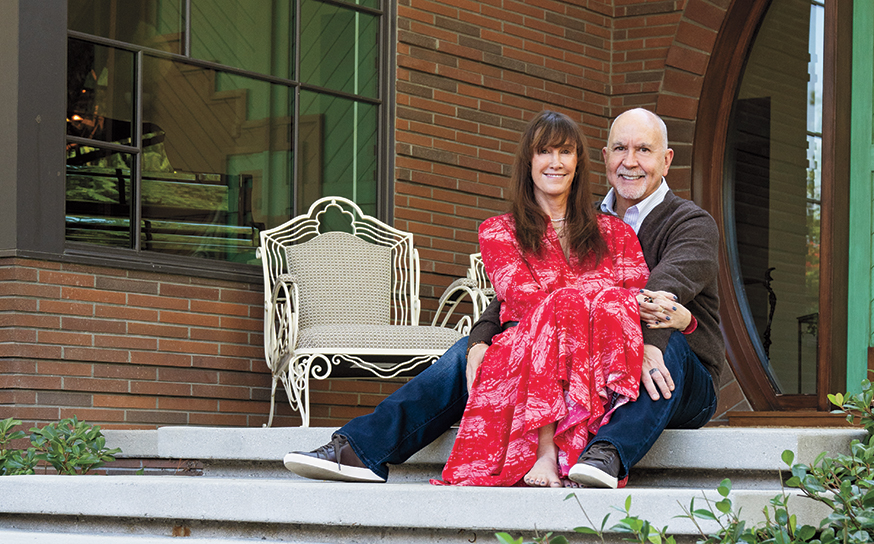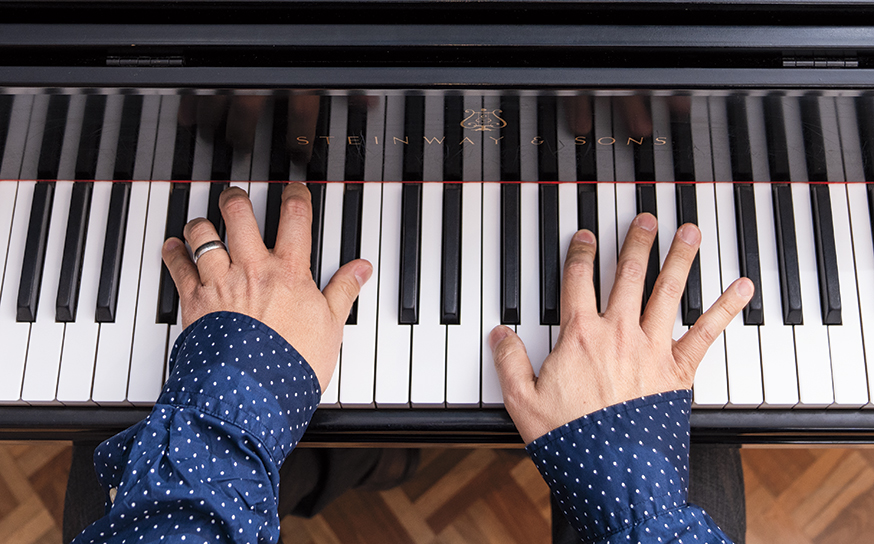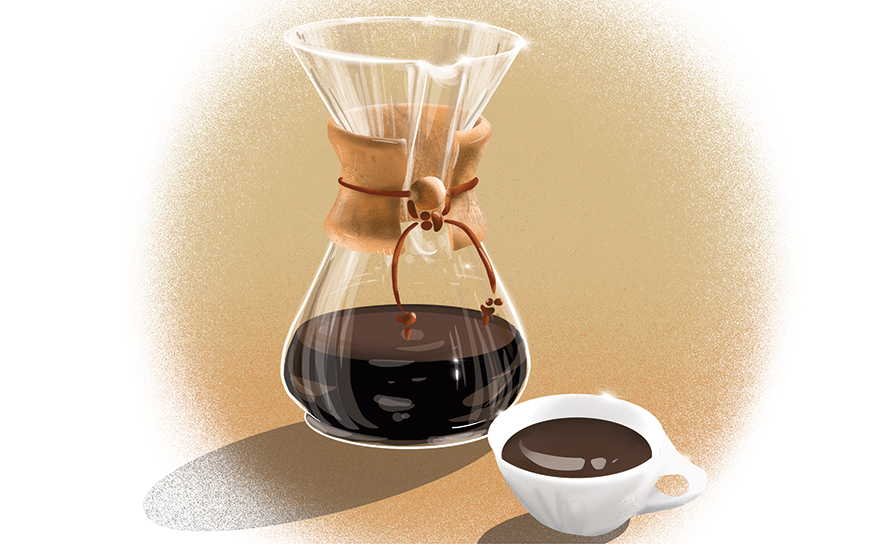The Family of Ed Asner Opens a Center for People with Special Needs in Reseda
Passion project.
-
CategoryPeople
-
Written byKaren Jordan
-
Photographed byShane O’Donnell
The Ed Asner Family Center may look like any other nondescript commercial property in Reseda, but founders Matt Asner—Ed’s son—and Matt’s wife, Navah Paskowitz-Asner, view it as a hub of healing and humanity. It is the embodiment of a dream come true—not just for the couple’s family, but for other locals who have family members with special needs.
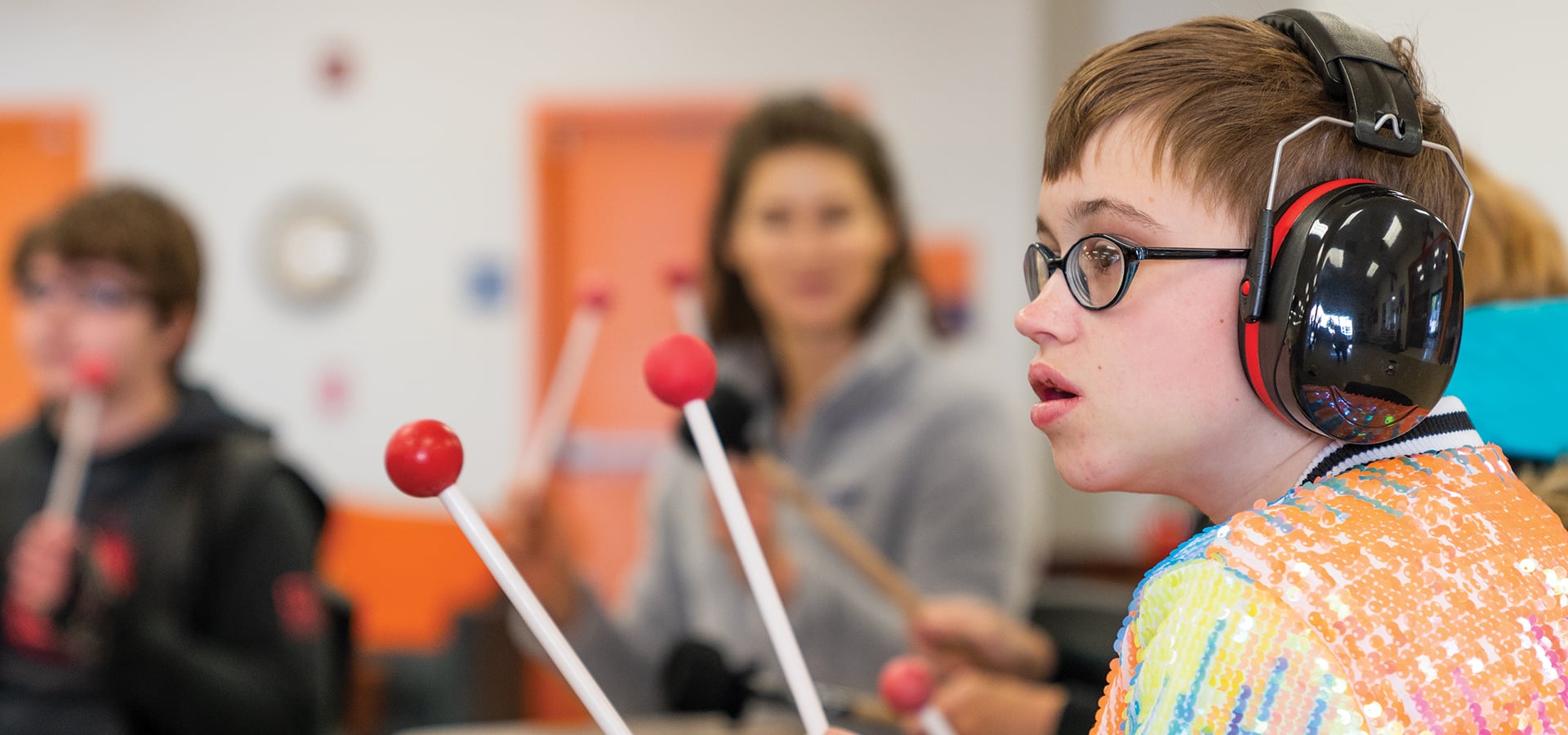
“This is our cooking class area,” Navah proudly points out while walking into the center’s big kitchen.
The center takes a holistic approach, offering arts and career advancement programs as well as counseling and mindfulness classes—all aimed at promoting self-confidence and life balance. Serving all ages, the center opened on Lindley Avenue a year and a half ago, but the innovative concept was years in the making.
The challenges of living with special needs are something the couple is very familiar with. Three out of the six children in their blended family have autism, sparking some to call them “The Brady Bunch of Autism.” A documentary was made about the family a few years ago, and they even have T-shirts bearing the moniker.
Navah says, “We’re in the trenches with our clients, and we really understand what they’re going through on a daily basis.”
That includes the anxiety that can arise on simple trips to the grocery store or during extended family gatherings.
“As special needs parents, you’re constantly on guard or on defense,” Navah explains. “‘Oh, is he going to touch something? Is he going to flip out? Is he going to knock into that woman at the grocery store?’”
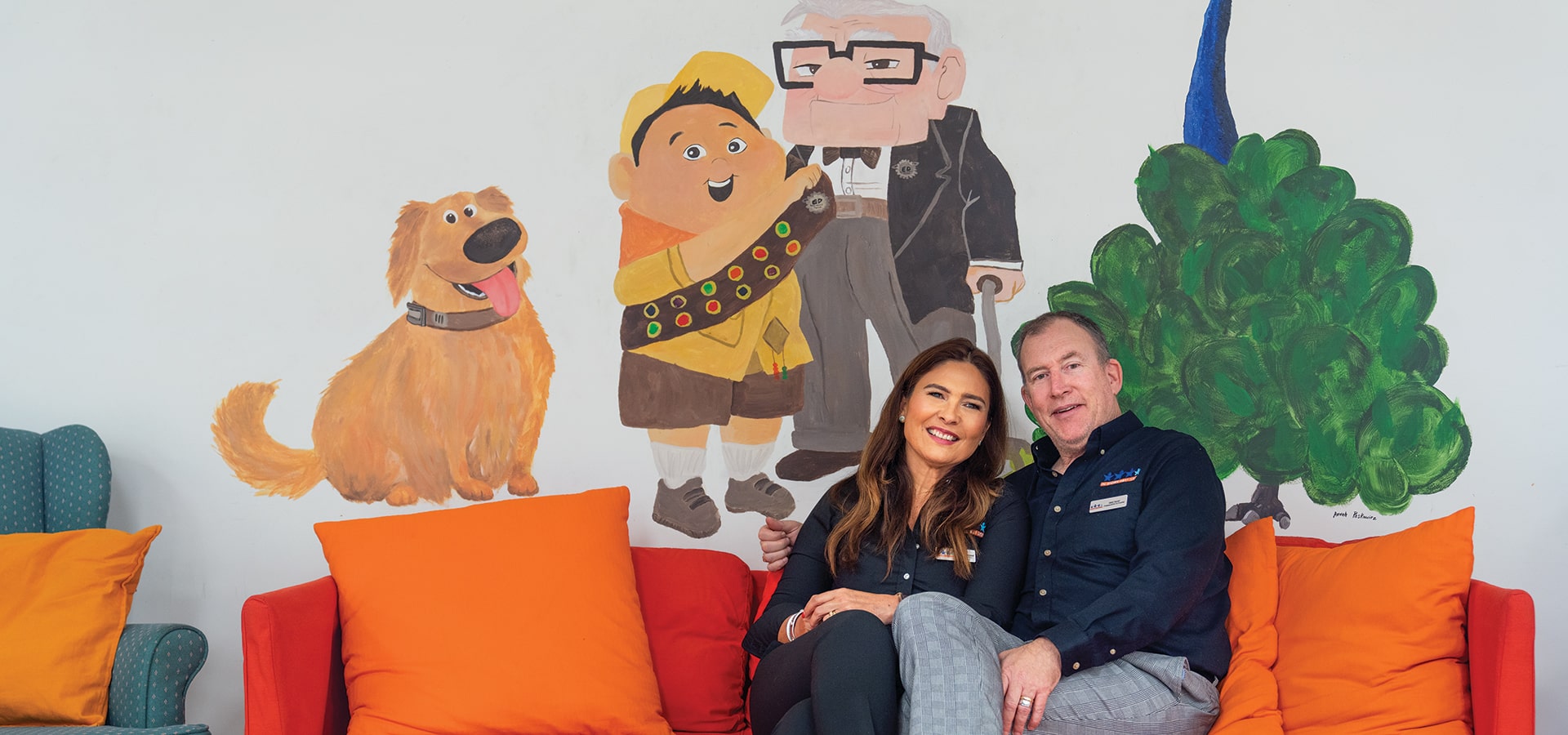
Above
On a wall at the center: a mural painted by the couple’s daughter, Avivah, depicting the movie Up, which Ed Asner starred in.
After a divorce from her first husband, Navah recalls facing a tough time. She says she can relate to what many of the single mothers at the center are experiencing.
“When Matt and I got together, I was a single mom,” Navah remembers. “I had three jobs. I was on food stamps. I was struggling mightily through a terrible divorce that ruined me financially, and I had terrible anxiety from it. My two youngest were autistic. My youngest was three. I had really little kids and working all the time and had horrible anxiety.”
Navah and Matt met when one of her brothers introduced them after her son was diagnosed with autism. Matt was working raising funds for the nonprofit Autism Speaks at the time. His younger son is autistic.
Navah soon began volunteering at Autism Speaks, and in an effort to figure out how she could help her son, started exploring surfing as a means of therapy for him.
She was also working at that time as the executive director of the Friendship Circle, designed for Jewish children with special needs, which was run by Chabad of Pacific Palisades. Many of the single mothers she met would call her in the wee hours of the morning just to vent. Navah decided to get trained as a life coach so she could help them even more.
“That kind of spurred me into talking my boss into having family retreats,” Navah says. “I’d have these conferences, and I’d bring in specialists from the Autism Speaks world, different people who could support these families, and I’d like to think the Ed Asner Family Center was created out of that.”
Both Matt and Navah are proud of the center’s mental health component, recalling how Navah, as a single mother, could not afford mental health support and counseling.
The center has therapists and support groups, including one for the LGBTQIA community, and keeping costs low is a priority. Counseling services are offered on a sliding scale, and they work with counselors from California State University, Northridge.
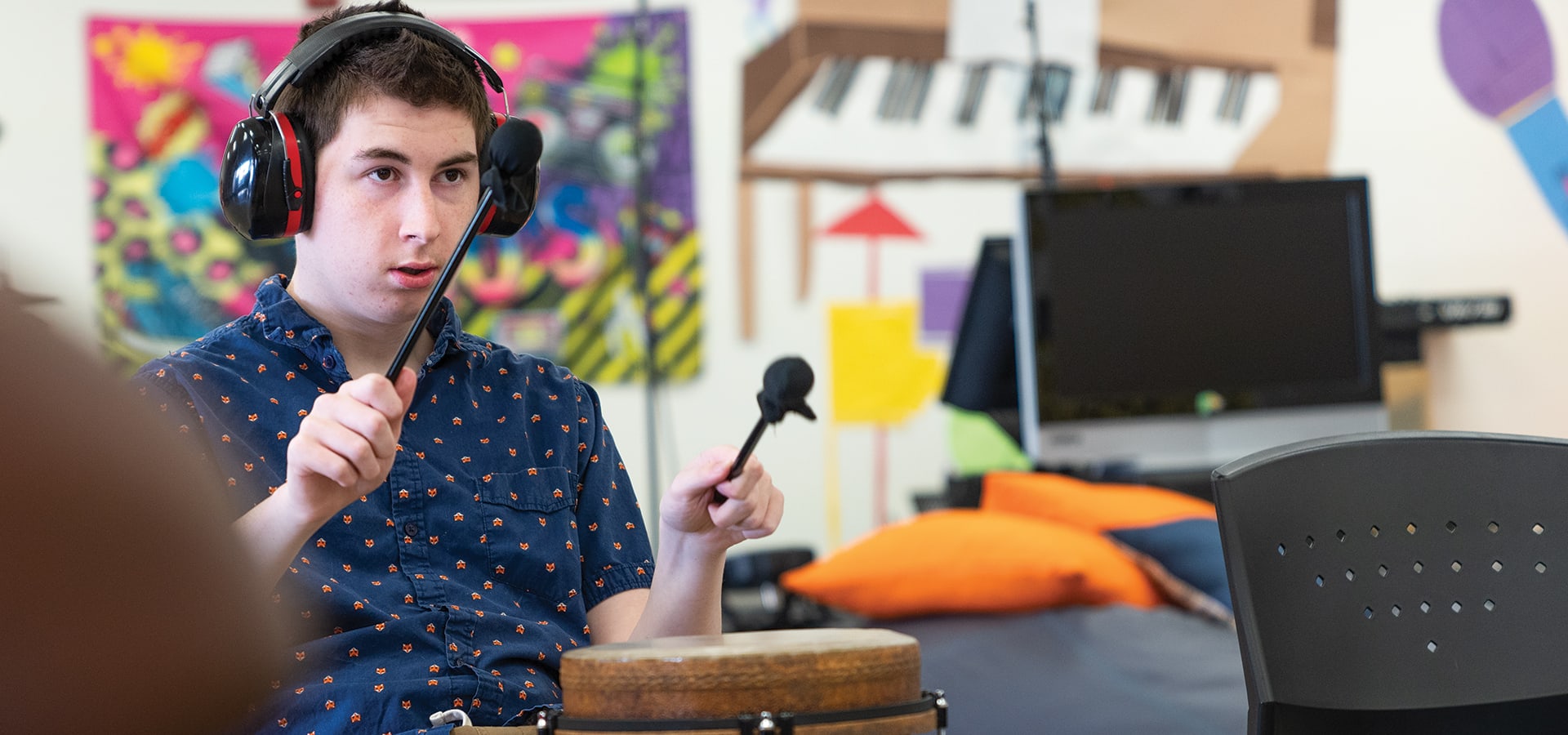
“I felt like mental health was paramount,” Navah says. “To me, to have had that support then would have been life-changing. When Matt and I were first discussing an idea for a facility I said, ‘If we can support these fractured families, if we can support the single moms—who are the majority of my families—then we’re supporting the children.’”
The center also operates Camp Ed, an all-inclusive summer and winter expressive-arts camp that costs $500 a week. Navah says 75% of participants receive scholarships. Enrichment classes are offered throughout the year, including voiceover, acting and improv. Nearby de Toledo High School sends students to volunteer at Camp Ed in exchange for community service hours.
“We have a wonderful community that provides volunteers,” Navah adds. Some single moms, who are getting full scholarships for their children, also volunteer.
At the couple’s home in nearby Tarzana, Navah thrives on being organized, making school lunches and laying out outfits for Willy, 17; Wolf, 16; and Eddy, 11. (The three other children are grown.)
Navah says her determination to keep things orderly stems from her unique childhood. She is the daughter of the late Dorian Paskowitz, a physician trained at the Stanford University School of Medicine. He was also a surfer who decided to forgo a lucrative career as a physician and instead live a nomadic life with his wife, eight sons and Navah, living in a camper and surfing full time. A documentary, Surfwise, was even made about the family.
“When you are raised in a 21-foot camper with 11 people, you get a hyper focus about orderliness and unclutter,” Navah says. “I’m a little bit obsessive in my planning and having everything prepared.”
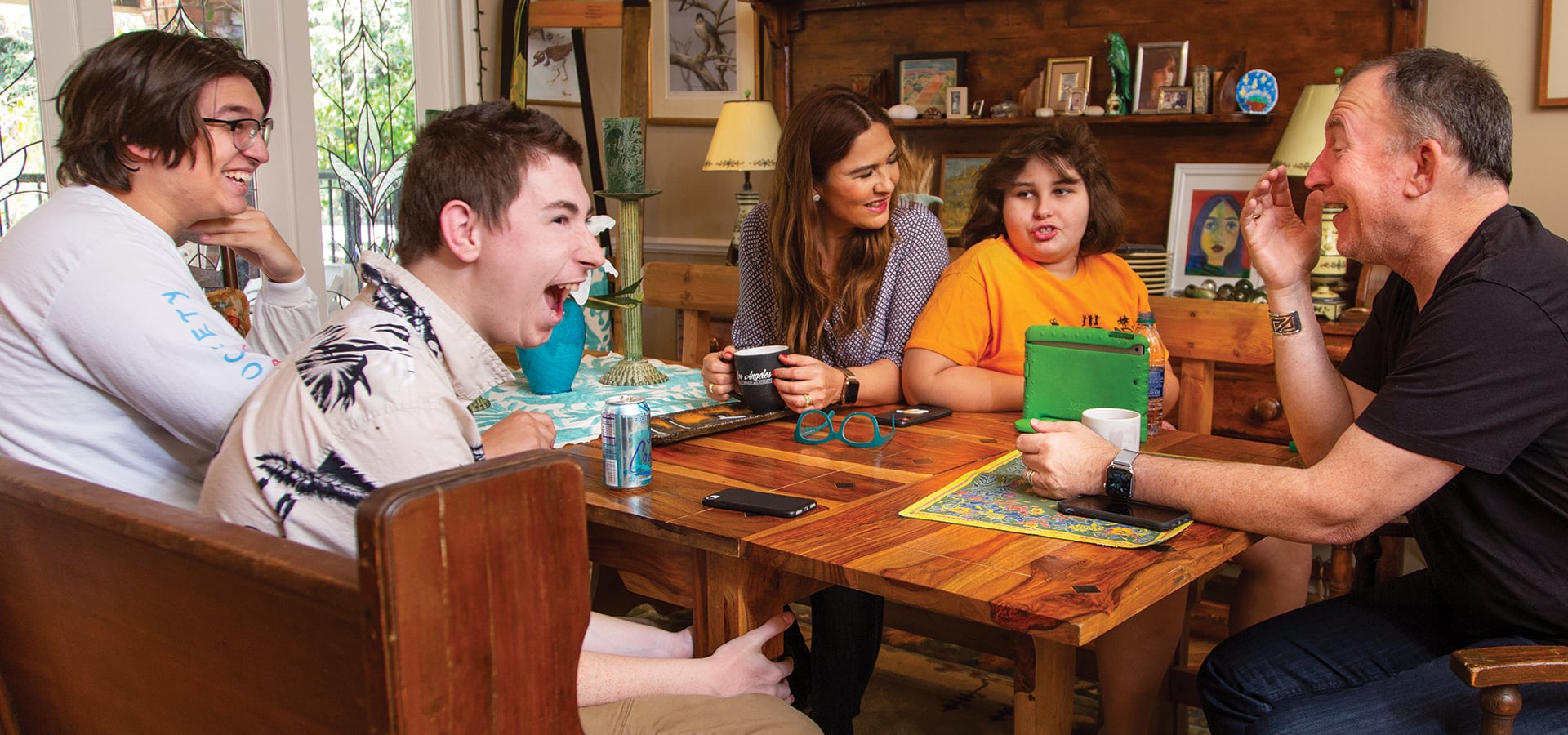
Above
Navah and Matt with three of their sons at home in Tarzana; three other children are grown.
The Ed Asner Family Center has become Matt and Navah’s home away from home, since as Navah points out, they are usually there seven days a week. Matt says their hope is that other families view the center the same way they do.
“We wanted to create a place that we wanted to go,” Matt says. “We wanted to create a place that was missing when our oldest was beginning to get services. We want to see families come together and have a place they can call home, a second place they can call home and feel comfortable.”
While Navah says they are grateful to be able to use Ed Asner’s name, all of the money to create and fund the center has come from donors.
“Every penny has been because Matt and I have been on the phone for the past three years or made presentations or created these fundraisers,” she says. “He has the name that famous people want to donate to, and they like the cause. But without his name we wouldn’t even be able to get our feet in the door of those places.”
Fundraising comes naturally to Matt. He’s done it pretty much his entire life.
“I was a producer and a director for 25 years before I got into the world of nonprofit,” he says. “So I was going with my hand out to different people for 25 years. Then everyone said, ‘You’re doing something different now. Isn’t that difficult?’ I said, ‘No, it’s really easy because I’m doing the same thing I always did, but now it’s for a righteous cause.’”
Ed Asner, who has a son in his 30s who is autistic, says he strongly believes in the center’s mission.
“I only wish my own autistic son, Charlie, could have benefited from the center,” says Ed, who is 90 years old and lives in Tarzana near the family. “We all could use this support. I know I could have. I am very proud to have this center named after me by my son and daughter-in-law. Its creation was visionary. They are visionary.”
Join the Valley Community






